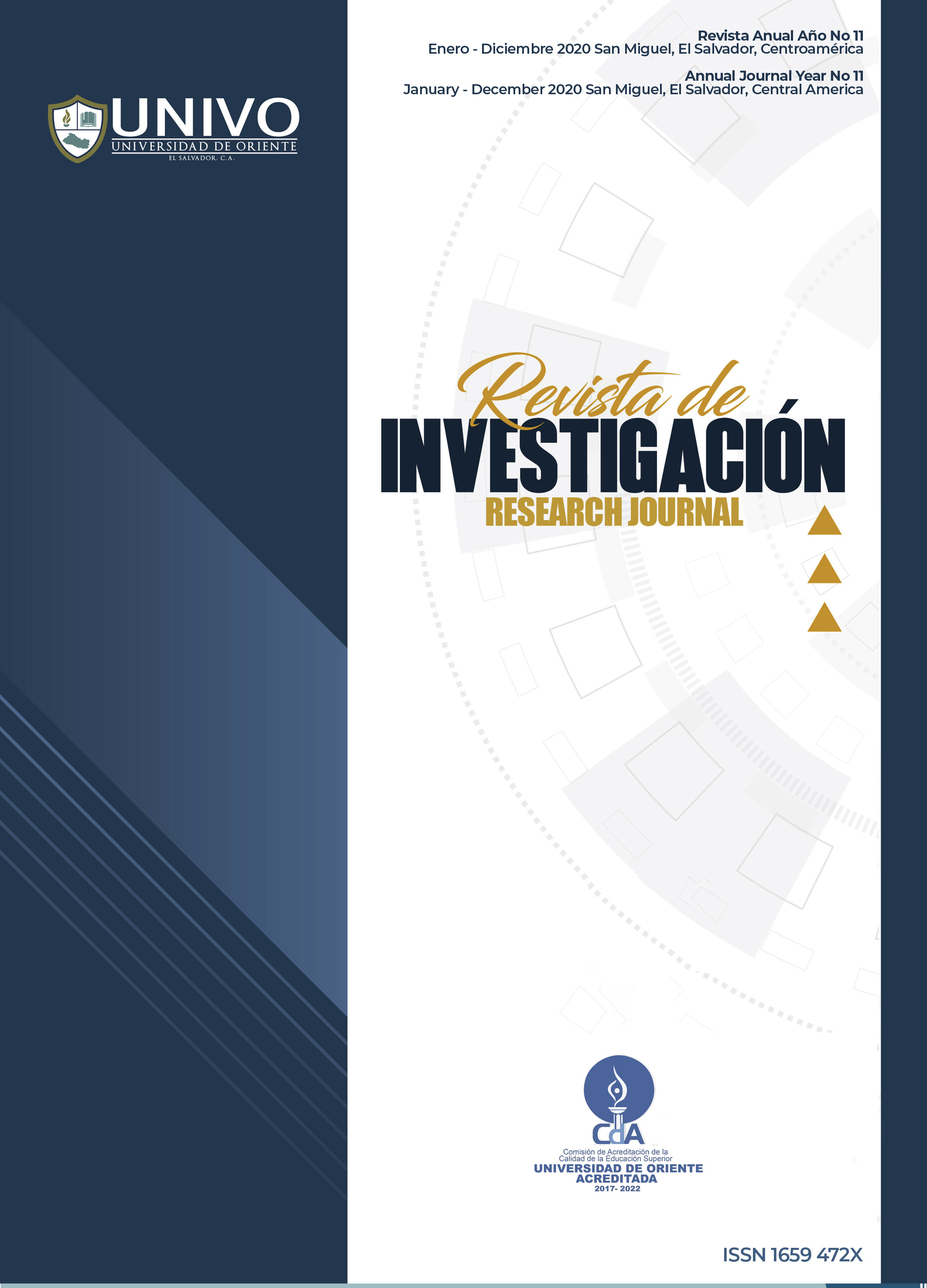Prototipo de muro ecológico no estructural elaborado con productos plásticos, tereftalato de polietileno
Contenido principal del artículo
Resumen
El presente estudio contempla un análisis de dos de los problemas actuales en El Salvador: el déficit de vivienda en la población de bajos ingresos y la sobreproducción de botellas plásticas hechas de tereftalato de polietileno. La investigación pretende relacionar estos dos problemas con los Objetivos de Desarrollo Sostenible, una iniciativa lanzada por las Naciones Unidas para continuar con la agenda de desarrollo posterior a los Objetivos de Desarrollo del Milenio. Los dos objetivos relacionados son colaborar con el país en la creación de ciudades y comunidades sostenibles mediante la construcción de un prototipo de muro ecológico. Este estudio pretende colaborar en la construcción de futuras viviendas sociales, reutilizando botellas de plástico PET como materia prima principal, capacitando a las personas de la comunidad para planificar, gestionar y crear las estructuras necesarias para el desarrollo local. Además, se busca activamente la reducción del plástico en los ecosistemas terrestres y marinos, ya que muchas de estas botellas no se tratan en plantas de reciclaje y terminan en ríos y océanos, dañando los ecosistemas y las especies.
##plugins.themes.bootstrap3.displayStats.downloads##
Detalles del artículo
Número
Sección

Esta obra está bajo una licencia internacional Creative Commons Atribución-NoComercial-CompartirIgual 4.0.

